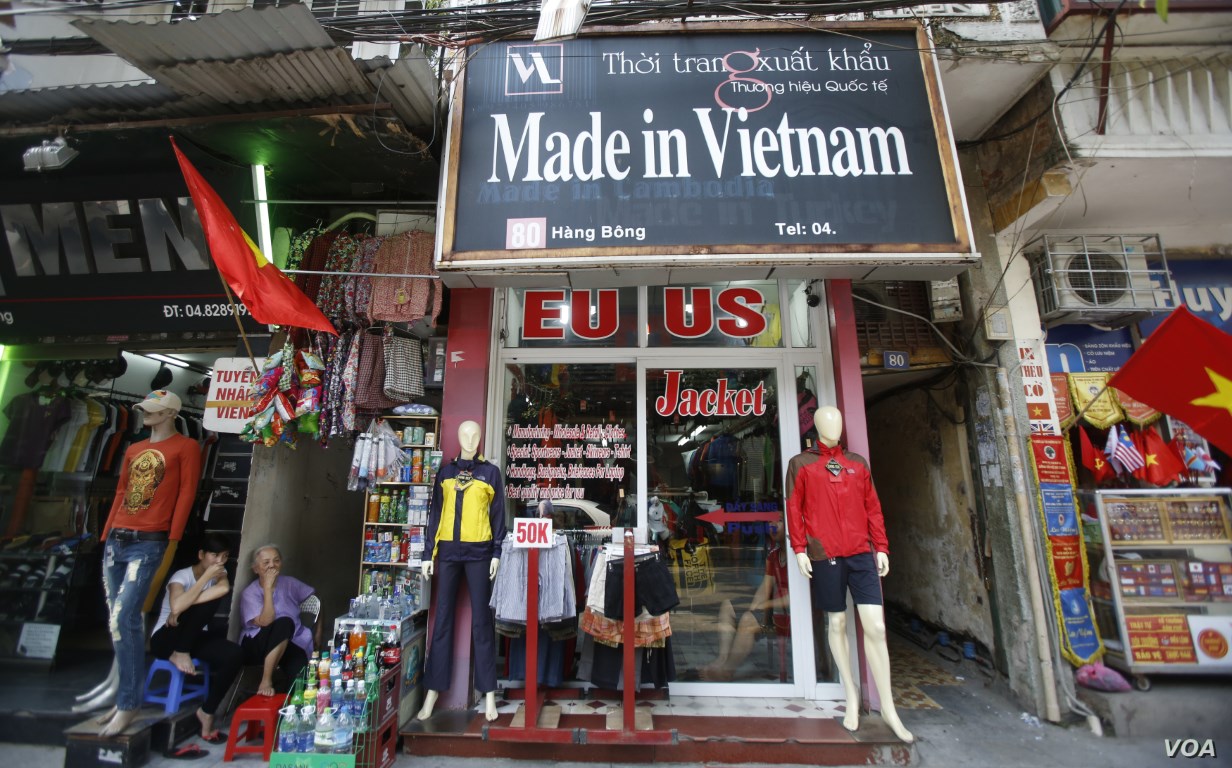Trump extends trade war to Vietnam
July 9, 2019 | Expert Insights

Background
The U.S. China trade war resulted in changes to existing supply chain and investment patterns, and one of the clear beneficiaries of this situation was Vietnam.
The country has been called “the new China,” given its low wages and lax labour and environmental regulations. Several firms have relocated production there in recent years, and U.S. imports from Vietnam have already risen 34 per cent in 2019. Vietnam ranks eighth in exports to the U.S.
In 2015, the Obama administration imposed anti-dumping charges on Chinese makers of cold-rolled steel. Duties were also imposed on South Korean and Taiwanese products. Since then, shipments of corrosion-resistant steel products and cold-rolled steel from Vietnam to the United States had increased by 332 per cent and 916 per cent. Vietnam allowed those manufacturers to transform their products in Vietnamese mills and then re-export it to the U.S.
The U.S. trade balance with Vietnam has gone from a surplus of $110 million in 1997 to a deficit of around $38 billion in 2017. It is the fifth-largest trade deficit that the United States has with any country.
Analysis
The newly imposed U.S. imposed duties are on imports of cold-rolled steel and corrosion-resistant steel products from Vietnam made with steel feedstock from South Korea and Taiwan.
The Commerce Department said in a statement that corrosion-resistant steel products and cold-rolled steel produced in Vietnam using a substrate of South Korean or Taiwanese origin had circumvented U.S. anti-dumping and anti-subsidy duties. The Department will temporarily apply circumvention measures by collecting cash deposits on them. The applicable cash deposit rates depend on the origin of the substrate and the type of steel product that is being exported to the U.S.
The Department issued a press release stating that “Commerce will instruct Customs and Border Protection to begin collecting cash deposits on imports of corrosion-resistant steel products and cold-rolled steel produced in Vietnam using Korean- or Taiwanese-origin substrate… U.S. law provides that Commerce may find circumvention of anti-dumping duty (A.D.) or countervailing duty (CVD) orders when merchandise that is the same class or kind as merchandise subject to existing orders is completed or assembled in a third country prior to importation into the United States.”
President Trump has stated that Vietnam is almost the ‘single worst abuser of everybody. ‘
An investigation was initiated at the request of ArcelorMittal U.S., Nucor Corp, United States Steel Corp, Steel Dynamics Inc, California Steel Industries and A.K. Steel Corp. Rob Carnell, Asia Pacific chief economist at ING Bank, said that it’s not surprising companies will try to route products through countries such as Vietnam to dodge higher duties. “You increase the cost and people are going to try and find a way to avoid it. It’s human nature.”
Vietnam said that it is working to cut down its trade surplus with the U.S. and is already cracking down on Chinese manufacturers who are rerouting their goods via the Southeast Asian nation for export to the U.S. in order to bypass higher tariffs.
Washington also added Vietnam to its currency manipulation watchlist in May, citing the country's rising trade surplus with the U.S. as one of the rationales.
U.S. Customs and Border Protection is also investigating six companies for evading anti-dumping duties who import carbon pipe fittings through Cambodia.
Assessment
Our assessment is that Vietnam has become an intermediate destination of exports to the U.S., which helps in circumventing existing duties on these products from Korea and Taiwan.
We believe that Vietnamese governments are likely to sign free trade agreements with other countries. It signed a free trade deal with the E.U. which will eliminate all customs duties on trade between E.U. and Vietnam. Since 2001, Hanoi has diversified its foreign relations and established comprehensive or strategic partnerships with 16 countries, including Japan, India, and Russia.
We also feel that Hanoi has strived to reduce the existing deficit by ordering $20 billion worth of Boeing planes and other equipment in February 2019. It has worked to deflect U.S. pressure by imposing its tariffs on Chinese steel. Despite these efforts, Vietnam's trade deficit with the United States has continued to widen.








Comments